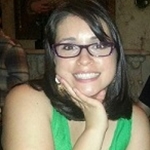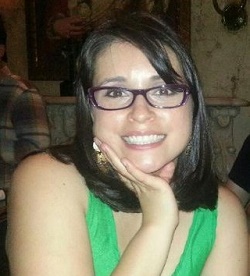Kerafast Community Profile: Ammy M. Santiago, Kerafast Fellow at Rutgers University
Kerafast Community Profile: Ammy M. Santiago, Kerafast Fellow at Rutgers University
The Kerafast fellowship program provides scientists with real-life experience in the technology commercialization field. Fellows work with Kerafast and their university’s technology transfer office to engage researchers in identifying new and unique reagents for addition to the Kerafast platform, where the materials can be easily accessed by scientists worldwide.
The fellows play a key role in spreading the word about Kerafast’s mission to advance life science research by facilitating access to novel bioreagents. As new materials are identified, they work with the providing investigator to determine and record the reagent’s characteristics, applications and benefits. Throughout the process, the fellows receive training from both Kerafast and their university in technology transfer, intellectual property and licensing agreements, allowing them to explore the business side of science research.
Ammy M. Santiago, a PhD candidate at Rutgers University, is one such fellow. We spoke to her this month about her research, work as a Kerafast fellow, and interests in both tech transfer and finding better treatments for diabetes.
For more information about Kerafast fellowships, or if you are interested in bringing the program to your university, please contact us at community@kerafast.com.
- Please describe your research. What are you investigating for your thesis?
My thesis work is trying to understand how the brain differentially regulates blood glucose levels in males and females. We are interested in how estrogen impacts glucose-sensing neurons in the hypothalamus to try and understand why females respond differently to a drop in blood glucose than males. We are also interested in determining if these neurons become more or less sensitive to glucose across the female reproductive cycle. Our findings have serious implications for the treatment of diabetic females via insulin therapy.
- What drew you to a Kerafast fellowship? What are you hoping to learn from the program?
I was introduced to the Kerafast fellowship through a colleague in the Rutgers Office of Research Commercialization and hope to gain exposure to the business side of science.
- Why are you interested in the technology transfer and commercialization field?
I am interested in the technology commercialization field because I believe the best way to build support for continued scientific research is by highlighting the amazing research currently being conducted in academic labs.
- What types of projects are you working on as a Kerafast fellow? What have you enjoyed the most so far? What are you looking forward to trying?
Most of my efforts as a Kerafast fellow involve interacting with faculty, discussing their research and highlighting the benefits a partnership with Kerafast can provide. I have mostly enjoyed learning about the research going on in the labs around my home lab and discussing science outside my area of expertise. I am looking forward to taking advantage of opportunities to interact with scientists outside Rutgers, through conferences, scientific congresses, etc.
- What type of career are you hoping to pursue after graduation?
About half-way through my PhD, I realized that my favorite part about my graduate career is presenting and discussing my work with others who are unfamiliar with my field. I think I would enjoy a career within the business development and scientific strategy fields since these areas involve interacting with scientists and non-scientists to help define and grow businesses within the scientific arena.
- As you know, Kerafast’s mission is to advance life science research by facilitating access to unique bioreagents. Are there any other causes whose mission you are passionate about?
Diabetes has had a huge impact on my family, which was one of the reasons I decided to pursue my current thesis project. I am passionate about supporting efforts to find better diagnostic, treatment and supportive therapies to combat a disease that has ballooned into a serious public health concern in the US. My efforts to support this cause extend outside the laboratory as I am a regular participant in the annual American Diabetes Association Tour de Cure Bike Race and Juvenile Diabetes Research Foundation Walk to Cure Diabetes fundraising events.




